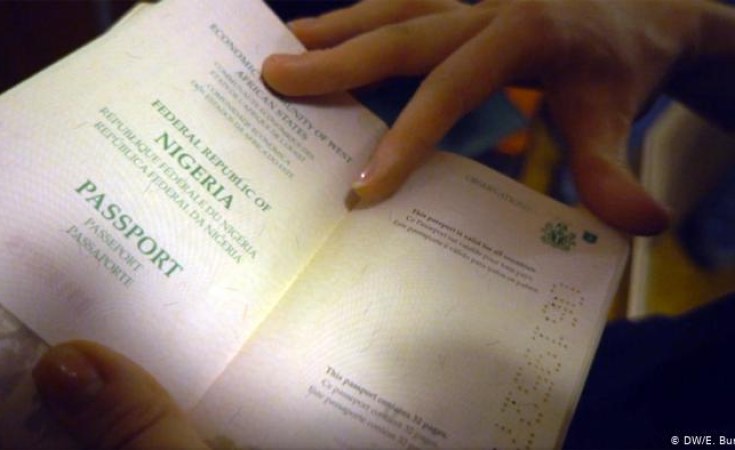"The citizens of Africa's wealthiest countries have very low passport power, and poor economic mobility," it said.
Although Nigeria ranked third among Africa's wealthiest countries, holders of its passport are at a disadvantage as it is not among the continent's top 20 passports providing access to visa-free destinations.
The revelation is contained in a report by Henley & Partners, a leading international residence and citizenship advisory firm, titled "Africa Wealth Report" AWR.
The report, released in March, is a guide to Africa's wealth and luxury sector, and it is usually published annually in partnership with a wealth intelligence firm, New World Wealth.
It provides a comprehensive review of private wealth in Africa, including high-net-worth-individuals, luxury, and wealth management trends, as well as expert insights on investment, the investment migration sector, and economic mobility on the continent.
"When it comes to visa-free access to global economic output, the citizens of African countries and other developing nations with sizable and growing private wealth are at a distinct disadvantage," the report noted.
More than just a travel document, the new report emphasised that passports can define peoples' financial freedoms regarding access to international investment and business opportunities.
By combining Henley Passport Index data and World Bank Gross Domestic Product (GDP) data, the report explained that Henley & Partners' revelatory new research ranks all 199 passports in the world in terms of their "Henley Passport Power" score, which is a newly developed term that indicates the percentage of global GDP each passport provides to its holders visa-free.
"What emerges is an unequivocal link between passport strength and economic power," the report said.
Key findings
The 72-page report found that passport holders of Africa's wealthiest country, South Africa, which scores 106 on the Henley Passport Index, can access almost half of the world's 227 destinations visa-free.
It added that a better measure of mobility for investors lies in their access to the world's economic output.
"This is reflected in the Henley Passport Power score, which completely changes the picture. The 106 (47%) of the world's destinations South Africans can access without a prior visa account for only about 15% of the world's GDP," the report said.
According to the report, Egyptians can access 53 destinations visa-free. This represents nearly a quarter of the globe, but they account for a mere 4 per cent of global GDP.
However, the report revealed that the passport of Africa's most populous nation, Nigeria, is not among Africa's top 20 high-ranking passports with high visa-free destination access. Holders of the Nigerian passport can only visit 46 countries without needing a visa, it said.
While the 46 destinations Nigerians can travel to without visa represent 20 per cent of the destinations worldwide, the report noted that they account for only around 2 per cent of global GDP.
"The citizens of Africa's wealthiest countries have very low passport power, and poor economic mobility," it said.
Scorecard
The report revealed that Seychelles, Mauritius, South Africa, Botswana, Namibia, Lesotho, eSwatini, Malawi, Kenya, Tanzania and Tunisia are the top ten countries with access to the highest number of visa-free destinations in Africa.
With a Seychelles passport, one can visit 153 countries across the world without needing a visa, the report showed, making the country's passport the highest in the continent. Holders of Mauritius passports can do 146 countries visa-free destinations.
Others include Botswana(86), Namibia(78), Lesotho(77), eSwatini(74), Malawi(73), Kenya(72), Tanzania(71), Tunisia(71), Zambia(70), The Gambia(68), Uganda (66), Cape Verde Islands(65) Morocco(65), Zimbabwe(65), Ghana(64), Sierra Leone(64), Mozambique(61), Benin(60), Rwanda(60), Sao Tome and Principe(59), Mauritania(58) and Burkina Faso(57).
Commenting on Nigeria's passport's poor performance in the ranking, Razaq Fatai, an Abuja-based policy analyst, said Nigeria's limited access could be a reflection of the quality of its institutions and brand perception.
"Until we have stronger institutions and push a positive narrative about the country, we may continue to face travel restrictions to many countries," he said.


